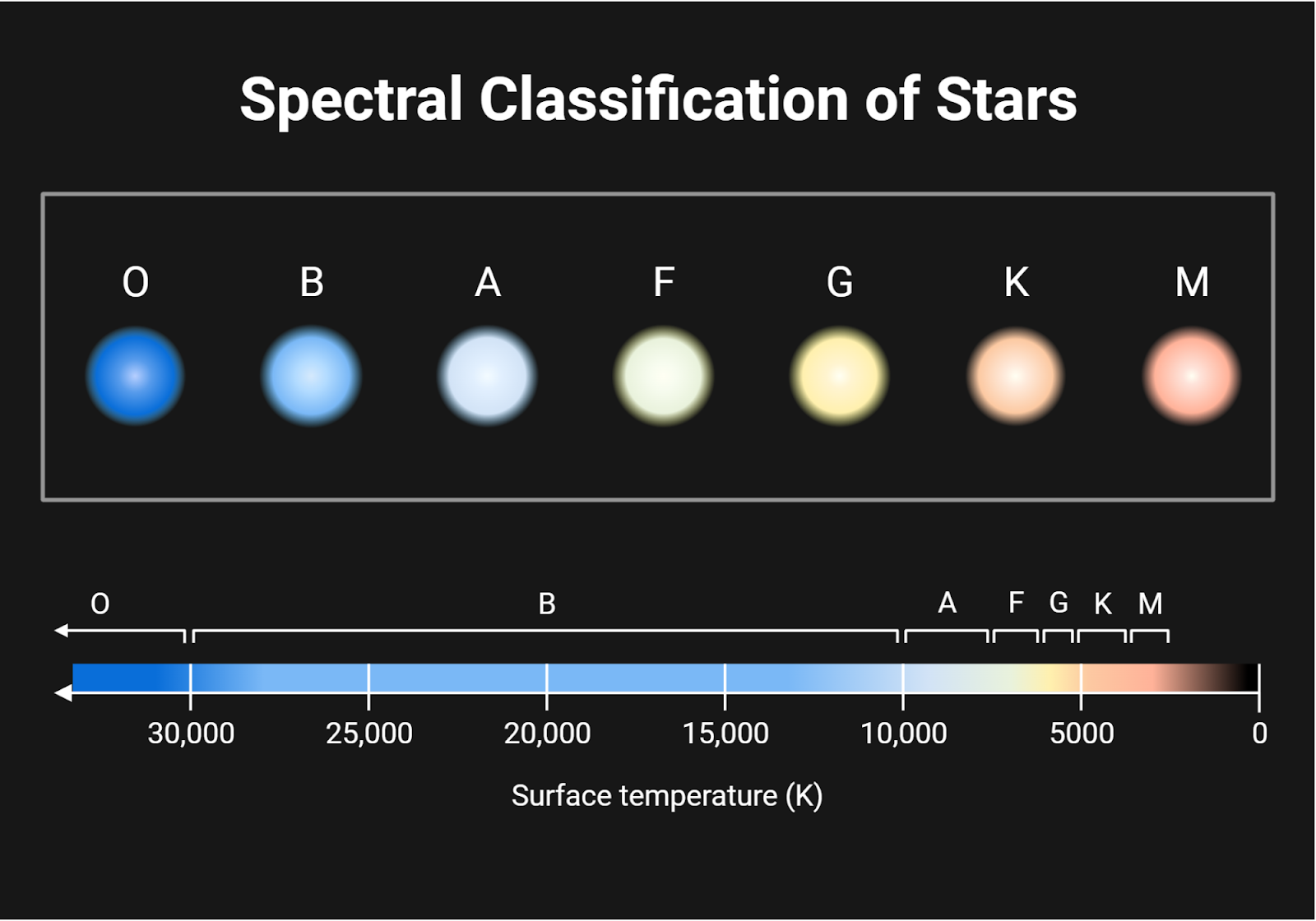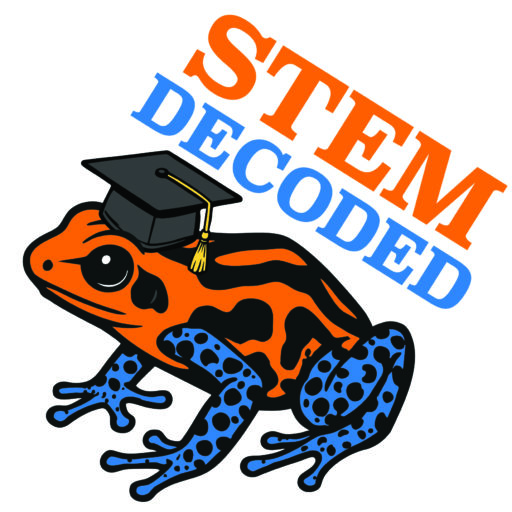By Janisha Jella
Creator of the modern stellar classification system and classifier of over 350,000 stars, Annie Jump Cannon is remembered as one of the most influential women in science. Hired by Harvard Observatory Director Edward C. Pickering, Cannon joined “Harvard’s female team of “Computers’” and was tasked with helping map and catalogue “every star to a photographic magnitude of 9” (Basu, 2021). There, she revolutionized star classification by refining a preexisting system and “reorganizing stars into categories O, B, A, F, G, K, and M” (Ehrenreich, n.d.), based on surface temperature.
To understand Cannon’s creation, it helps to first understand spectroscopy—the tool that made her system possible. Spectroscopy is the “scientific method of studying objects and materials based on detailed patterns of colors (wavelengths).” In short, it is an analysis used to classify stars by their characteristics, such as what they “are made of, how hot they are, how dense they are, and how fast they are moving in space.” Scientists can identify these characteristics through the interaction of light and matter because “Different materials give off and interact with different colors of light in different ways, depending on properties like temperature, composition, and motion” (Spectroscopy 101 – Introduction, 2020).
So, how exactly is spectroscopy related to Cannon’s creation? The answer lies in a specific form of spectroscopy: Balmer absorption lines. These are a series of absorption lines from hydrogen that appear in the visible part of the light spectrum. They “arise when the electron in a hydrogen jumps from level 2 to level 3, level 2 to level 4… and so on,” and the “strength of Balmer lines (that is, how much absorption they cause) depends on the temperature of the [star] cloud” (Lesson 4, n.d.).This variation in strength distinguishes hotter stars from cooler ones. Cannon recognized the potential in using Balmer lines as a criterion for star classification, so she built her new system around them.
With the Balmer Lines, Cannon was able to reorganize a preexisting classification system into what we now call the temperature sequence. The first spectral taxonomy, made by Edward Pickering and Williamina Fleming, used “capital letters (from A…Z) that denoted the strength (or broadness) of the hydrogen absorption lines in a star.” Following this, Antonia Maury “rearranged the Pickering’s B stars to come before the A stars” by using the width of spectral lines. Later, Cannon refined this system “so that O stars came before B and A stars, added subdivisions (e.g., A0-A9), and consolidated many of the classes.” Her version of the spectral classification became known as the temperature sequence, which includes seven spectral types: O, B, A, F, G, K, and M – with “O stars being the hottest” (The Classification, n.d.) and M stars being the lowest temperatures.

Figure 1
An infographic illustrating Cannon’s original OBAFGKM scale (Kim, n.d.).
With this new taxonomy, Cannon was able to “identify a spectrum in as little as 20 seconds.” In fact, she was able to identify “358,000 stars during her long career” (“Famous Women,” 2021). Additionally, in 1922, Cannon’s classification system for stars was “adopted by the International Astronomical Union and is still in use today with minor modifications” (Basu, 2021). By the end of her life, Annie Cannon Jump was able to get rewarded with recognition for her work and became an inspiration for ambitious women in science. She was the first woman to earn a “doctorate from the University of Oxford” in 1925, and received the “Henry Draper Medal of the National Academy of Sciences in 1931” (Chu et al., n.d.).
Cannon’s work, determination, and efforts are showcased throughout her life, and her achievements stand as a testament to them. Not only did she develop the basis for modern stellar research, but she was also responsible for classifying hundreds of thousands of stars with speed and accuracy. Cannon will forever be remembered for her scientific contributions and for breaking gender barriers in astronomy.
Bibliography:
Basu, A. (2021, February 1). Annie jump cannon and the creation of stellar classification.
Sidereal times. https://princetonastronomy.com/2021/02/01/
annie-jump-cannon-and-the-creation-of-stellar-classification/
Chu, S., Graybeal, J. D., Stoner, J. O., & Hurst, G. S. (n.d.). Annie Jump Cannon (The Editors of
Encyclopaedia Britannica, Ed.). Britannica. Retrieved August 17, 2025, from
https://www.britannica.com/biography/Annie-Jump-Cannon
The classification of stellar spectra. (n.d.). Saturn Axis. Retrieved August 12, 2025, from
https://saturnaxis.github.io/ModernAstro/Chapter_8/classification-of-stellar-spectra.html
Ehrenreich, R. (n.d.). Annie jump cannon’s stellar achievements. SPS. Retrieved August 6, 2025, from
https://students.aip.org/observer/annie-jump-cannons-stellar-achievements
Famous women astronomers – annie jump cannon. (2021, August 26). 365 days of astronomy.
Aug 26th: Annie Jump Cannon
Kim, S. (n.d.). Spectral Classification of Stars [Infographic]. bioRender.
https://cdn.prod.website-files.com/621e95f9ac30687a56e4297e
65dcff54b51d4c7416b84813_V2_1689166277806_2afb3a9a-2533-43af-9d4f-a8ffb4a5cace_HIGH_RES.png
Lesson 4. (n.d.). ASTRO 801: Planets, Stars, Galaxies, and the Universe. Retrieved August 10, 2025,
from https://www.e-education.psu.edu/astro801/book/export/html/1763
Spectroscopy 101 – introduction. (2020, July 7). WEBB Space Telescope. Retrieved August 8, 2025,
from https://webbtelescope.org/contents/articles/spectroscopy-101–introduction
